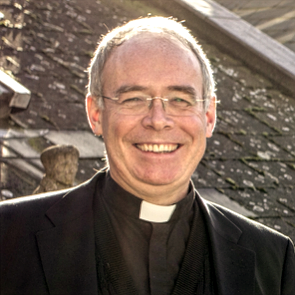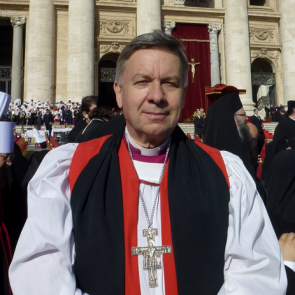Nobody with an interest in Christianity in the 21st century can have missed the recent challenges of the Anglican Communion. As a Primate who took part in three Primates’ Meetings and two Lambeth Conferences over the last two decades, these Anglican troubles have been written into my soul.
It is good news that Archbishop Justin Welby has decided to call a meeting of the Primates in January. This has been described in some parts of the media as a “crisis summit”. This misses the point. The reality is that we are over the crisis point – the moment when an illness could go one way or the other. We passed that many years ago. No province has declared formal schism and no province has created a body separate from the Anglican Communion.
What we have, however, is an unresolved situation where we have not fully worked out all our relations with each other.
In the Catholic church, the model of the church invests “full, supreme, and universal power over the whole Church” in one Bishop, “a power which he can always exercise unhindered”. The nature of the Anglican Communion has a concept of authority which is diffused globally.
The Archbishop of Canterbury, often described as the primus inter pares (first among equals), has an authority of honour, based on the power to declare who is in communion with him and the power to convene. At heart his authority is relational, and this is something Justin Welby has focused his first two years on. He has visited every province of the Anglican Communion and every Primate, and we are seeing the fruits of this labour now, in this meeting.
MORE ON THIS STORY...
Archbishop Welby has also made conflict resolution a hallmark of his life and ministry, working (at risk to his own life) for this in Nigeria and bringing about an agreed way forward over women bishops in England that many thought would be impossible.
So what does he want to do? The scandal of Christian disunity – and, within that, Anglican disagreement – is that there are so many things in the world we could do so much better together. Christians are being slaughtered; climate change threatens our way of life; humans migrate in numbers unseen for over a thousand years; potential disciples, especially in the West, see our disunity and look no further.
Archbishop Welby is exploring how we can work together ecumenically on some of these issues, and he wants the Anglican Communion to show how united efforts, despite disagreement, can nurture lasting fruit in these areas. How can we learn to disagree well and to continue to love each other and serve the common good?
To do this we need to establish what, allowing for theological diversity, is the highest possible common ground of unity. One of the tragedies of disunion is how we focus on the matters we disagree about.
The reality is that we agree on so much. Anglicans have no disagreement about core credal doctrine; the question comes in the diversity of interpretation of that doctrine and its outworking in subsidiary issues. We have recently agreed guidelines for understanding the authority of the bible and its interpretation.
What will this common ground of unity in diversity look like? It is likely to retain that basic definition of being an Anglican, being in communion with the Archbishop of Canterbury, that communion being defined by something similar to the earlier portions of the Anglican Covenant which was mooted some years ago. Provinces, however will have different levels of relationship with each other, some very close, some very distant.
The analogy doing the rounds is of a family that sleeps in separate bedrooms but still live in the same house and still eat at the same table. Perhaps another analogy could be spokes on a wheel.
You might think “how is this different from the reality now?” That is very much the point. We have already come to a position where relationships are complicated but, crucially, not ended. In what some might call “classic Anglican style” we have arrived at what might be a contemporary via media, or middle way: the “high common ground”.
Not only is this resolution absolutely vital for the Anglican Communion internally, but also for our ecumenical relationships. We pray for the restoration of the full visible unity of the universal church, characterised by unity in diversity within the Anglican Communion and between the global churches. We need to find agreed ways of being together and agreed ways of working with other Christians coherently, despite our differences.
This Primates’ Meeting will, by the grace of God, help bring it about.
Archbishop David Moxon, is the Archbishop of Canterbury’s representative to the Holy See and Director of the Anglican Centre in Rome. He was Primate of the Anglican Church in Aotearoa, New Zealand & Polynesia until 2013.




 Loading ...
Loading ...
What do you think?
You can post as a subscriber user ...
User comments (1)
...."We have recently agreed guidelines for understanding the authority of the Bible and its interpretation."....
Could more information be given on what those guidelines are? And how many other Christian churches are in agreement with them?
What people regard as the authority of the Bible and its interpretation seems crucial to any coming to a common ground.